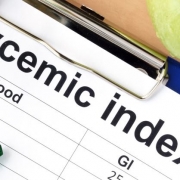Electrolytes 101: Getting Your Body the Electrolytes it Needs

Whether you’re an avid cyclist, a recreational jogger, or just someone who exercises from time to time, you’ve probably had someone tell you that you need to replenish your body’s electrolytes. And the conversation probably stopped there. Electrolytes are typically discussed in vague terms. Most active people can tell you that electrolytes are linked to hydration, sweat, and exercise, but can’t dive into the specifics.
That’s where this article comes in. Read on for an in-depth breakdown of what electrolytes are, why your body needs them, and what you can do to ensure your body has enough of them.
What Are Electrolytes?
If you immediately noticed the similarities between the words “electrolyte” and “electricity,” you’re actually on to something. Electrolytes are substances that have a positive or negative electrical charge when they are dissolved in water. (That’s where the prefix “electro” comes from.) The human body is about two-thirds water, so electrolytes can be found in most of your cells.
It’s important to note that the electrolytes in your body are not all the same substance, but rather a variety of substances, such as sodium, magnesium, and potassium. These substances all have either a positive or a negative charge, and you need all of them to maintain a healthy electrolyte level.
Electrolytes can be found in most fluids in your body, including blood and urine, as well as other body tissues. As your body fluid levels change, so do your electrolyte levels. This means that processes such as sweating and urinating naturally deplete your body’s electrolytes—and those electrolytes need to be replaced. But more on that later!
What Do Electrolytes Do for Your Body?
At this point, you probably have one big question: what do electrolytes actually do? And the answer might surprise you. All electrolytes do the same thing—conduct electrical charges. But this simple function plays a part in a wide variety of body processes including muscle contraction, the transmission of nerve signals, balancing fluid levels, and maintaining a natural pH level within the body.*
Naturally, not all electrolytes fulfill the same role. The list below breaks down some of the most common electrolytes found in the body and the processes they help maintain:
- Calcium: When it comes to muscle function, calcium is a star player. This mineral, which carries a positive charge, helps muscle fibers slide as the muscle contracts. It’s also a building block for your bones and teeth, helps regulate your heartbeat, and send nerve signals.*
- Magnesium: This electrolyte is a bit of an all-arounder, playing a part in muscle function, DNA and RNA production, and it supports an already healthy immune system.*
- Sodium: The big thing most people discuss when they talk about sodium is blood pressure. Sodium plays a major role in regulating the amount of fluid in your body which, in turn, impacts your blood pressure. As with many other electrolytes, sodium also plays a role in muscle and nerve function.
- Potassium: Potassium plays a big part in muscle and heart function. If you have too little, you might experience muscle fatigue, weakness, and even cramps. And, once again, potassium also helps with the transmission of nerve impulses.
- Chloride: This electrolyte helps your body maintain its pH levels—in other words, it balances acidity and alkalinity. Chloride also plays a part in balancing your body’s electrolyte levels.*
- Phosphate: Like calcium, phosphate helps your body build—and maintain—strong bones and teeth. It also helps produce the energy that your body puts towards growing and repairing tissue.*
- Bicarbonate: Through the process of respiration, you breathe in oxygen and breathe out carbon dioxide. But some of the carbon created during that process stays in your body in the form of bicarbonate. This electrolyte helps maintain heart function and balances the pH levels of your blood.*
Maintaining Electrolyte Levels
Most people first hear about electrolytes through product marketing. Between electrolyte drinks and other supplements, there are a lot of products marketed as solutions for maintaining healthy electrolyte levels. But are these supplements necessary? It depends.
The best way to ensure you are getting all of the electrolytes you need is by eating a well-balanced diet. Fresh fruits and vegetables are excellent sources of potassium and, in the case of leafy greens, calcium. You can also find calcium in dairy products such as milk and cheese. Sodium can come from a variety of sources including pickles, cheese, and smoked or canned meats. Seeds and nuts, on the other hand, are rich in sodium.
As you can see, the various electrolytes can be found across a variety of food groups: grains, fruits, vegetables, dairy, and proteins. If your diet includes appropriate portions of each food group, your electrolyte levels should be in a good place—if you’re not performing high-intensity exercise.
But what if you are an athlete? Or an occasional 5k runner? Or you spend several hours doing yard work in the hot sun?
This is where electrolyte supplements come in. Remember how you can lose electrolytes by sweating? Well, if you are engaging in an activity that causes you to sweat more than normal, you are losing more electrolytes than normal. And your regular diet may not be enough to quickly replenish your electrolyte levels. By drinking an electrolyte beverage or taking another electrolyte supplement, you can get a leg up on recovery and ensure you are keeping your electrolytes at a healthy level.
Just remember: it’s always good to read the nutrition label. Many electrolyte beverages contain a lot of sugar. A little bit of sugar will help your body in the absorption of the electrolytes, but a lot can throw off an otherwise balanced diet.
It’s All About Balance: The Woes of Too Little or Too Many Electrolytes
Unfortunately, it is possible to have too much of some good things. And electrolytes are one of those things.
Remember all of those body processes that electrolytes support? If you have too few of any given electrolyte in your system—a set of conditions denoted by the prefix “hypo”—you run the risk of those processes not functioning correctly. Too little sodium, for instance, is a condition known as hyponatremia, and too little calcium is known as hypocalcemia.
When you have too much of any given electrolyte, it can be similarly detrimental for your health. (These conditions all have the prefix “hyper.”)
With a healthy diet, it is unlikely that you will hit these electrolyte levels. If you do take a supplement, follow the labelled directions. But, as always, it’s best to consult a doctor if you are in doubt.
The Bottom Line
On a day-to-day basis, you don’t necessarily need to be thinking about electrolytes. Focus on eating a variety of foods from the various food groups and try to steer clear of overly processed foods. If you find yourself experiencing unusual symptoms a doctor may recommend blood tests that can help identify electrolyte imbalances.
And if you know that you’re losing a lot of electrolytes via sweat, it’s not a bad idea to sip on an electrolyte drink during or after your exercise.










